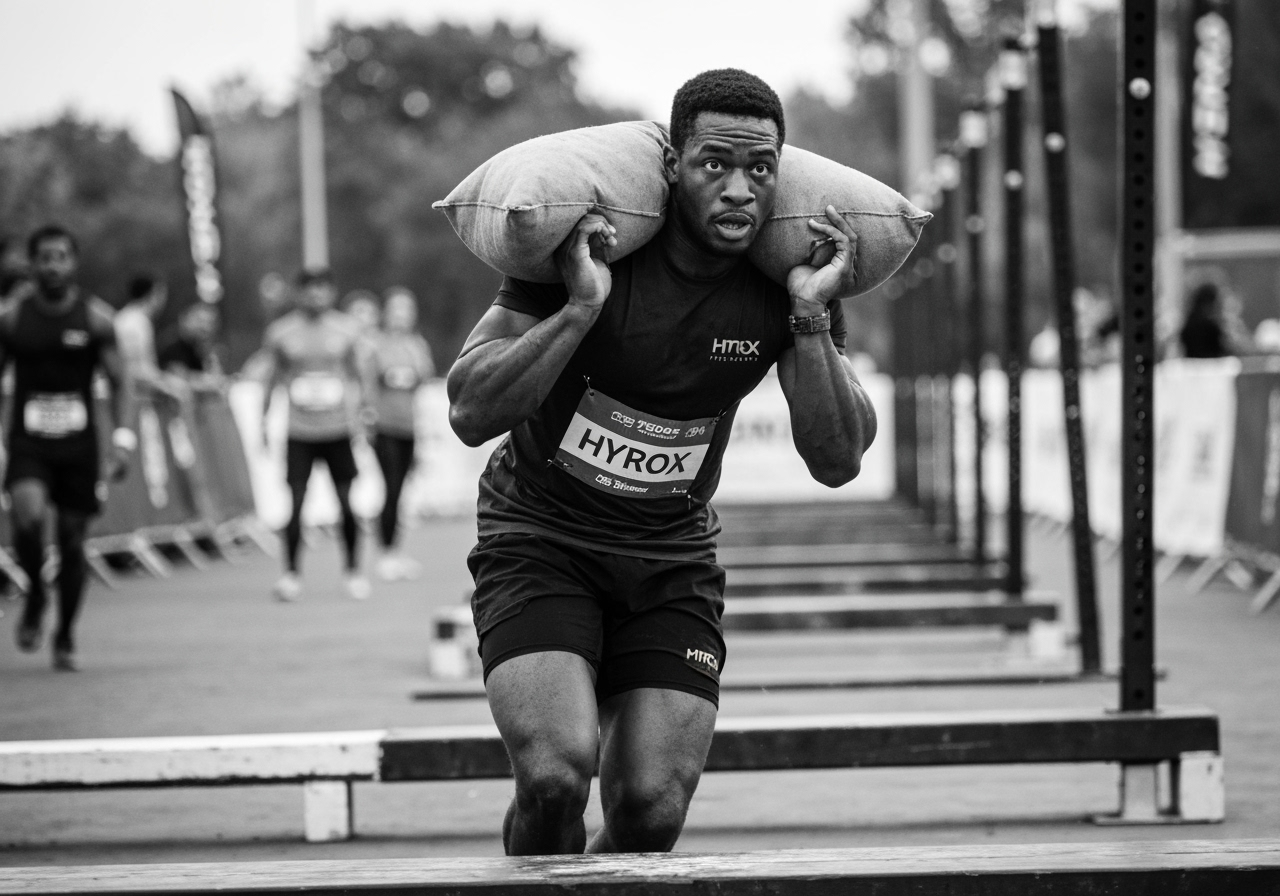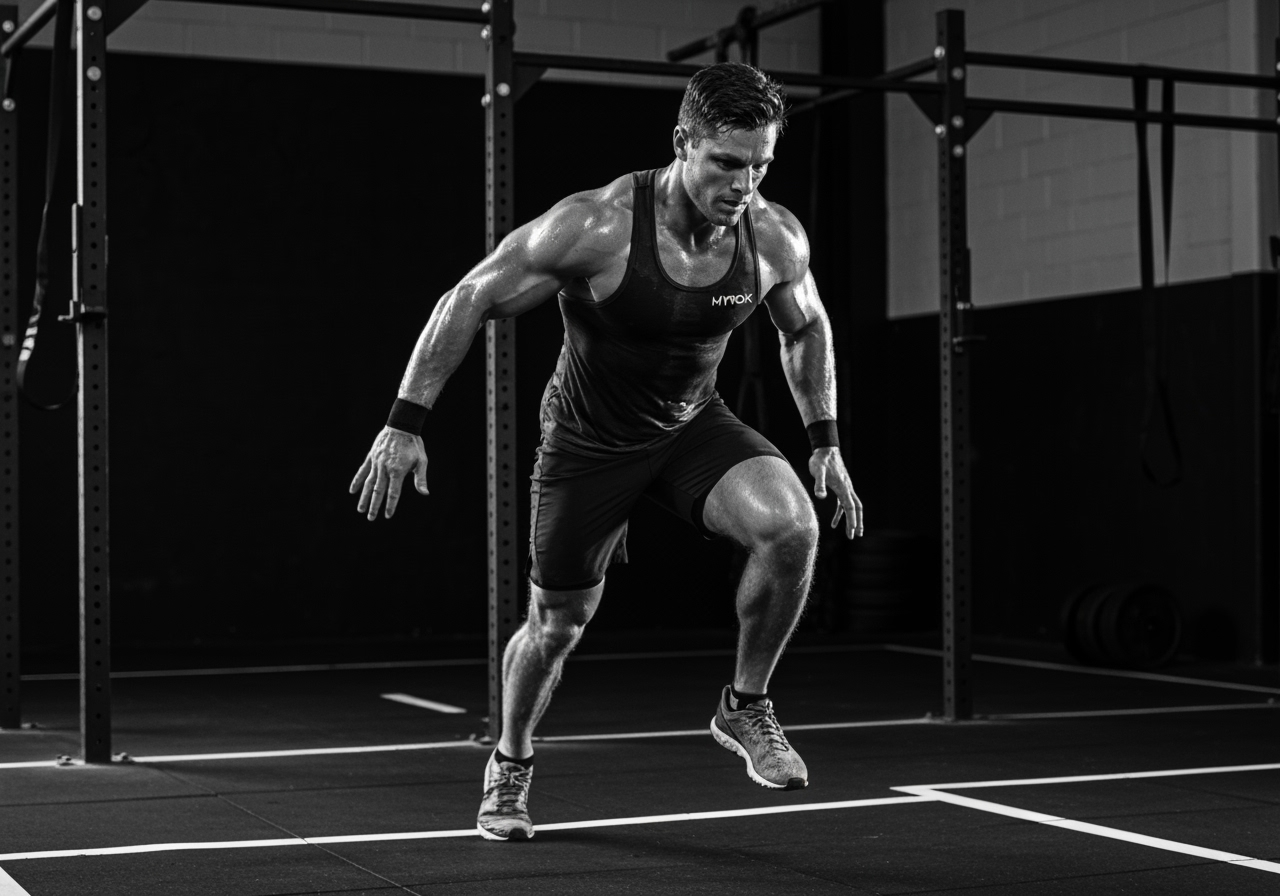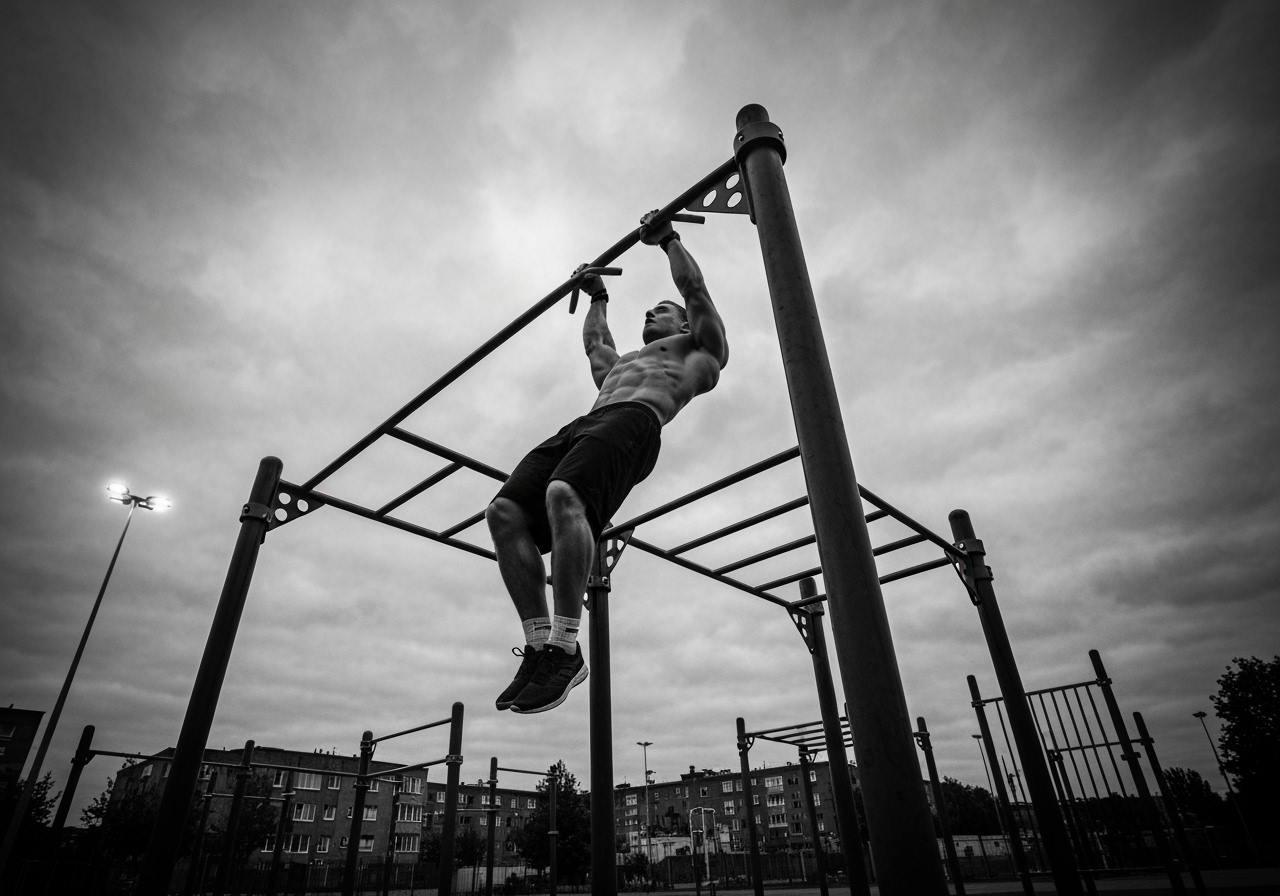
If you've ever hit the final station of a HYROX race — lungs on fire, legs screaming, sweat blurring your vision — you know the wall ball is not just "the last exercise". It's the gatekeeper between you and the finish line.
Why the Wall Ball Is More Than Just a Throw
The wall ball station is where races are won, lost, or painfully dragged out. For many, this station becomes a battle of form versus fatigue. Get it right, and you can power through clean, efficient reps. Get it wrong, and you'll burn unnecessary energy, miss targets, and lose precious time.
The good news? Wall ball mastery is not about brute strength — it's about efficient technique, smart pacing, and the right physical prep.
Let's break it down into 7 practical, race-proven tips so your next HYROX wall ball set feels less like torture and more like execution.

1. Nail Your Stance Before You Even Lift the Ball
Before you even grab that medicine ball, your stance sets the tone for every rep.
Perfect Wall Ball Stance:
- Feet Position: Slightly wider than shoulder-width to give you a strong squat base
- Toe Angle: Point your toes out just a touch (about 10–15°) to help your knees track naturally over your toes
- Weight Distribution: Keep weight in the mid-foot to heel. If you're too far forward, you'll burn your quads early
💡 Pro Tip: Practice your wall ball stance without the ball during warm-ups. Find your "sweet spot" where you can drop into a squat smoothly without shifting weight or losing balance.
2. Keep the Ball High and Your Chest Up
The moment you let the ball drop to your stomach or lap between reps, you're making life harder.
Optimal Hold Position:
- Ball just under your chin, elbows tucked in, chest tall
- Why It Matters: A high starting point reduces the distance you need to throw and keeps your upper body engaged without overloading your arms
- Avoid: Letting your chest cave in — this kills your squat depth and can lead to missed reps
Drill: Between sets, practice holding the wall ball in this position for 30–45 seconds to build isometric strength in your upper back and biceps.
3. Sync the Squat and Throw as One Fluid Motion
The biggest mistake? Treating the squat and the throw as two separate movements. In HYROX, flow saves energy.
Perfect Timing:
- On the Way Up: Drive through your heels, extend hips and knees, and use that upward momentum to launch the ball
- On the Way Down: Catch the ball as you descend into your next squat — no wasted pause at the bottom or top
- Mental Cue: "Squat to load, throw to unload"
This timing turns the wall ball into a cyclical rhythm instead of a choppy stop-start grind.
 wall ball technique demonstration showing fluid squat-to-throw motion" style="width: 100%; max-width: 600px; height: auto; border-radius: 8px;" />
wall ball technique demonstration showing fluid squat-to-throw motion" style="width: 100%; max-width: 600px; height: auto; border-radius: 8px;" />
4. Use Your Legs — Not Just Your Arms
The wall ball is not an upper-body strength test. Your legs are the engine, your arms are just the delivery system.
Power Distribution:
- Leg Drive: Power comes from a full squat extension — think of "jumping" the ball upwards without leaving the ground
- Arm Role: Guide and release the ball, don't muscle it from the shoulders alone
- Efficiency Trick: The more your legs do, the more your shoulders and triceps can relax for the next throw
5. Find Your Breathing Rhythm
By the wall ball station, your heart rate is high and oxygen debt is real. Bad breathing = sloppy form.
Breathing Pattern:
- Breathe Out: As you throw — helps brace your core and avoid holding your breath
- Breathe In: On the way down/catch — preps your body for the next squat
- Avoid: Gasping between reps. That breaks flow and adds fatigue
HYROX-Specific Hack: Every 10–15 reps, take one slightly longer breath before continuing. This micro-reset can keep you consistent without tanking your pace.
6. Train Beyond Race Standards
In HYROX, men throw a 6kg ball to a 3m target, women throw a 4kg ball to a 2.7m target. But in training? Go heavier and/or higher.
Training Overload Examples:
- Why: Overload in training makes race-day standards feel lighter and more manageable
- 7–8kg ball at race height
- Standard ball at +30cm higher target
- Progression: Build up gradually — don't jump straight to max overload
This also builds mental confidence: if you can hit heavier, higher targets in training, the real thing feels easier.
7. Break Your Set Into Manageable Chunks
100 wall balls can feel overwhelming. Mentally, that's a mountain. But 10×10 reps? That's a series of hills.
Chunking Strategy:
- Chunk Method: Decide on your break points before you start (e.g., 4×25, 5×20, or 10×10)
- Micro Pauses: Keep breaks under 5–8 seconds — long enough to shake out arms, not long enough for legs to cool down
- Game-Day Adjustment: If you feel strong, merge chunks mid-set for fewer stops

Common Wall Ball Mistakes in HYROX (and How to Fix Them)
| Mistake | Why It Hurts | Quick Fix |
|---|---|---|
| Dropping ball to stomach between reps | Wastes energy lifting it back up | Keep ball high under chin |
| Pausing after the catch | Breaks rhythm, adds time | Catch as you descend |
| Throwing only with arms | Shoulder fatigue, slower throws | Drive from legs |
| Not hitting target height | No-rep penalties | Aim slightly higher than target |
| Knees caving in on squat | Power loss, injury risk | Push knees out, strengthen glutes |
Training Drills for Wall Ball Domination
Tempo Squats with Medicine Ball
3 seconds down, 1 second pause, drive up fast. Builds control and leg drive.
Wall Ball EMOMs
E.g., 15 reps per minute for 6–8 minutes. Trains pace under fatigue.
Overhead Target Throws
Practice hitting a small mark on the wall to sharpen accuracy.
Ball Cleans
Lift the ball from the floor to the chest repeatedly. Strengthens the "pick-up" and holding position.
Final Thoughts: Respect the Wall Ball, Own the Finish
The wall ball isn't just the last HYROX station — it's the final mental test. When everyone around you is gassed, clean form and smart pacing are your competitive edge.
Remember:
- Start with the right stance
- Keep the ball high and chest proud
- Flow through the squat and throw
- Let your legs do the heavy lifting
- Breathe with purpose
- Train harder than race standards
- Break the set into mental wins
Get these right, and the wall ball won't be a nightmare — it'll be your victory lap.